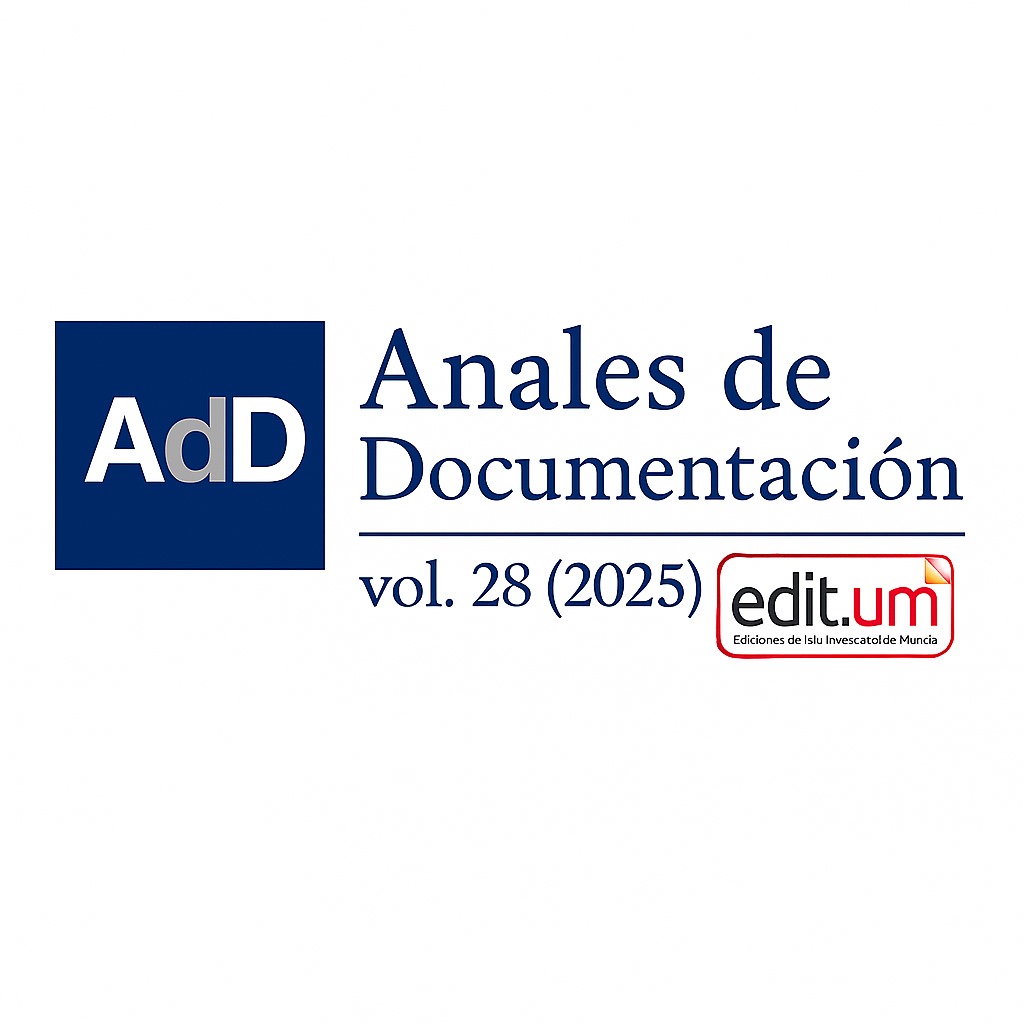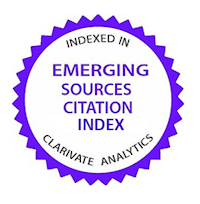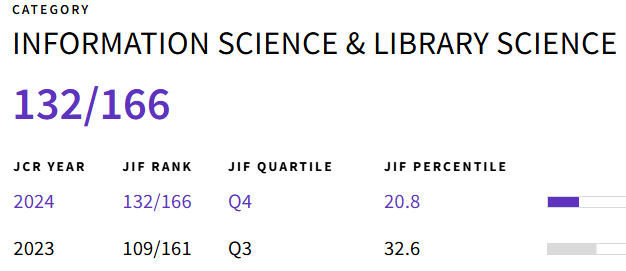Listas de encabezados de materia e iniciativas de tesauro para la equidad y la justicia social: identificación y caracterización
Resumen
La investigación tuvo como objetivo describir iniciativas para la creación y actualización de listas de encabezamientos de materias y tesauros considerando la justicia y la equidad social, a partir de la literatura de la dimensión sociocultural de la Organización del Conocimiento. Como procedimiento metodológico, esta investigación aplicada adopta un enfoque cualitativo, utilizando una revisión del alcance. El estudio identifica 27 iniciativas para crear y actualizar listas de encabezamientos de materias y tesauros centrados en la justicia social y la equidad: ocho iniciativas de género, ocho de grupos indígenas, cinco de grupos LGBTQIA+, cinco de raza y etnia y una de varios. La investigación identifica iniciativas exitosas para construir y actualizar listas de encabezamientos de materias y tesauros para promover la justicia social y la equidad, especialmente aquellas enfocadas en las comunidades indígenas. Sin embargo, el acceso limitado a algunos de estos sistemas se considera una barrera para ampliar la difusión de las iniciativas.
Descargas
Métricas
-
Resumen765
-
PDF 543
-
XML-JATS 0
Citas
Bardenheier, Penelope; Wilkinson, Elizabeth H and Dale, Hëmi. (2015). Ki te Tika te Hanga, Ka Pakari te Kete: With the right structure We weave a strong basket. Cataloging & Classification Quarterly, vol. 53, nº 5-6, 496-519. https://doi.org/10.1080/01639374.2015.1008716
Barité, Mario. (2011). Sistemas de Organización del Conocimiento: una tipología actualizada. Informação & Informação, vol. 16, nº 2, 122-139. https://doi.org/10.5433/1981-8920.2011v16n2p122
Barité, Mario; Colombo, Stephanie; Duarte Blanco, Amanda; Simón, Lucía; Cabrera Castromán, Gabriela; Odella, María Luisa y Vergara, Mario. (2015). Diccionario de organización del conocimiento: clasificación, indización, terminología. Montevideo: Ediciones Universitarias. https://hdl.handle.net/20.500.12008/9028
Bone, C. & Lougheed, B. (2018). Library of Congress Subject Headings related to indigenous peoples: Changing LCSH for use in a canadian archival context. Cataloging & Classification Quarterly, vol. 56, nº 1, 83-95. https://doi.org/10.1080/01639374.2017.1382641
Broughton, Vanda; Hansson, Joacim; Hjørland, B. and López-Huertas, María José. (2005). Knowledge organization. In: Kajberg L and Lorring, L. (ed.). European curriculum reflections on education in library and information science. Copenhagen: Royal School of Library and Information Science. https://www.repository.unipr.it/bitstream/1889/1704/1/EUCLID%20European%20LIS%20curriculum.pdf
Broughton, Vanda. (2019). The respective roles of intellectual creativity and automation in representing diversity: human and machine generated bias. Knowledge Organization, vol. 46, nº 8, 596-606. https://doi.org/10.5771/0943-7444-2019-8-596
Bullard, Julia; Dierking, Amber and Grundner, Avi. (2020). Centring LGBT2QIA+ Subjects in Knowledge Organization Systems. Knowledge Organization, vol. 47, nº 5, 393-403. https://scholarworks.gvsu.edu/library_sp/68/
Campbell, Heather M.; Dieckman, Cristopher S.; Teal, W. and Wintermute, H.E. (2022). Improving Subject Headings for Iowa Indigenous Peoples. Library Resources & Technical Services, vol. 66, nº 1, 48-59. https://doi.org/10.5860/lrts.66n1.48
Chansanam, Wirapong; Kwiecien, Kanyarat; Buranarach, Marut and Tuamsuk, Kulthida. (2021). A Digital Thesaurus of Ethnic Groups in the Mekong River Basin. Informatics, vol. 8, nº 3. https://doi.org/10.3390/informatics8030050
Colquhoun, Heather L.; Levac, Danielle, O’Brien, Kelly K.; Perrier, Laure; Kastner, Monika and Moher, David. (2014). Scoping Reviews: time for clarity in definition, methods, and reporting. Journal of Clinical Epidemiology, vol. 67, nº 12, 1291-1294. https://doi.org/10.1016/j.jclinepi.2014.03.013
Cunha, Isabel Maria Ribeiro Ferio. (1987). Documentação africanista: linguagem e ideologia. Ciência da Informação, vol. 16, nº 1. https://revista.ibict.br/ciinf/article/view/268
Díaz-Jatuf, Julio. (2022). Indizar la disidencia afectivo-sexual en bibliotecas. buenas prácticas en el tratamiento de la información para la comunidad GLTTIBQ (gay, lésbicas, transexual, travesti, intersexual, bisexual, queer). Em: Encuentro Nacional de Catalogadores. Buenos Aires. https://www.bn.gov.ar/resources/conferences/encuentroVIII/1LUNES/9_JATUFTEXTO.pdf
Digital Transgender Archive. (1997). HOMOSAURUS: an international LBBTQ+ linked data vocabulary. https://homosaurus.org/
Doyle, Ann M.; Lawson, Kimberley and Dupont, Sarah. (2015). Indigenization of knowledge organization at the Xwi7xwa Library. Journal of Library & Information Studies, vol. 13, nº 2, 107-134. http://hdl.handle.net/2429/54261
Drenthe, Gusta. (1993). The Dutch women's thesaurus: A tool for cooperation between women's collections in the Netherlands and Belgium. Women's Studies International Forum, vol. 16, 4, 437-444. https://doi.org/10.1016/0277-5395(93)90037-A
Drucker, Donna J. (2017). How Subjects Matter: The Kinsey Institute’s Sexual Nomenclature: A Thesaurus (1976). Information & Culture, vol. 52, nº 2, 207-228. https://muse.jhu.edu/article/658180
Farnel, Sharon; Koufogiannakis, Denise; Laroque, Sheila; Bigelow, Ian; Carr-Wiggin, Anne; Feisst, Debbie and Lar-Son, Kayla. (2018). Rethinking Representation. The International Journal of Information, Diversity, & Inclusion, vol. 2, nº 3, 9-25. https://www.jstor.org/stable/48644435
Gerhardt, Tatiana Engel; Silveira, Denise Tolfo; Neis, Ignacio Antonio; Abreu, Sabrina Pereira de Rodrigues; Rosany Schwarz. (2009). Métodos de Pesquisa. Porto Alegre: Editora da UFRGS. https://lume.ufrgs.br/handle/10183/52806
Hardesty, Juliet. and Nolan, Allison. (2021). Mitigating Bias in Metadata: A Use Case Using Homosaurus Linked Data. Information Technology & Libraries, vol. 40, nº 3, 1-14. https://doi.org/10.6017/ital.v40i3.13053
Hjorland, Birger. (2016). Knowledge Organization (KO)? Knowledge Organization, vol. 43, nº 6, 475-484. https://doi.org/10.5771/0943-7444-2016-6-475
Johnson, Matt. (2010). Transgender subject access: history and current practice. Cataloging & Classification Quarterly, vol. 48, nº 8, 661-683. https://search.lib.utexas.edu/permalink/01UTAU_INST/apl7st/cdi_informaworld_taylorfrancis_310_1080_01639370903534398
Khurshid, Zariruddin. (2002). Arabic script materials: cataloging issues and problems. Cataloging & Classification Quarterly, vol. 34, nº, 4, 67. https://doi.org/10.1300/J104v34n04_07
Lee, Deborah. (2011). Indigenous knowledge organization: a study of concepts, terminology, structure and (mostly) indigenous voices. Partnership: The Canadian Journal of Library & Information Practice & Research, vol. 6, nº 1, 1-33. https://doi.org/10.21083/partnership.v6i1.1427
Lilley, Spencer C. (2015). Ka Pō, Ka Ao, Ka Awatea: The interface between Epistemology and Māori subject headings. Cataloging & Classification Quarterly, vol. 53, nº 5/6, 479-495. https://doi.org/10.1080/01639374.2015.1009671
López-Huertas, María José and Ramírez, Isabel de Torres. (2007). Gender terminology and indexing systems: the case of woman’s body, image and visualization. Libri: International Journal of Libraries & Information Services, vol. 57, nº 1, 34-44. https://doi.org/10.1515/LIBR.2007.34
Mai, Jens-Mai. (2013). Ethics, Values and Morality in Contemporary Library Classifications. Knowledge Organization, vol. 40, nº 4, 242-253. https://doi.org/10.5771/0943-7444-2013-4-242
Metoyer, Cheryl A. and Littletree, Sandra. (2015). Knowledge organization from an indigenous perspective: The Mashantucket Pequot Thesaurus of american indian terminology project. Cataloging & Classification Quarterly, vol. 53, nº 5/6, 640-657. https://doi.org/10.1080/01639374.2015.1010113
Milani, Suellen Oliveira and Pinho, Fabbio Assis. (2021). Organização do Conhecimento Crítica: reflexões sobre representação e homossexualidade. In Amorin, I. and Sales, R. (eds.). Ensaios em Organização do Conhecimento. Florianópolis: UDESC, 187-210.
Olson, Hope A. and Schlegl, Rose. (2001). Standardization, objectivity, and user focus: A meta-analysis of subject access critiques. Cataloging & Classification Quarterly, vol. 32, nº 2, 61. https://doi.org/10.1300/J104v32n02_06
Olson, Hope A. (2002). The power to name: locating the limits of subject representation in libraries. Dordrecht: Springer.
Olson, Hope A. (2007). How we construct subjects: a feminist Analysis. Library Trends, vol. 56, nº 2, 509-541. https://10.1353/lib.2008.0007
Proença Júnior, Domicio and Silva, Édison Renato (2016). Contexto e processo do mapeamento sistemático da literatura no trajeto da pós-graduação no Brasil. Transinformação, vol. 28, nº 2, 233-240. https://doi.org/10.1590/2318-08892016000200009
Rogers, Margaret N. (1993). Are we on equal terms yet? Subject headings concerning women in LCSH, 1975-1991. Library Resources & Technical Services, vol. 37, nº 2, 181-196.
Rumrill, Philip D.; Fitzgerald, Shawn M. and Merchant, William R (2010). Using Scoping Literature Reviews as a Means of Understanding and Interpreting Existing Literature. Work, vol. 35, nº 3, 399-404. https://doi.org/10.3233/WOR-2010-0998
Soglasnova, Lana and Hanson, Mary (2015). Socially responsive design and evaluation of a workers’ compensation thesaurus for a community organization with selective application of cognitive work analysis: a case study. Cataloging & Classification Quarterly, vol. 53, nº 8, 905-926. https://doi.org/10.1080/01639374.2015.1044632
Vital, Luciane Paula; Hernandez, Bianca Ferreira and dos Santos, Andreia. (2019). Análise de conteúdo da produção científica da organização do conhecimento em sua dimensão política e social no Brasil. Informação & Informação, Londrina, vol. 24, nº 3, 1-27. https://doi.org/10.5433/1981-8920.2019v24n3p1
Watson, Brian M. (2021). Advancing equitable cataloging. In North American Symposium on Knowledge Organization Proceedings, 1-28. Washington: University. https://doi.org/10.7152/nasko.v8i1.15887
Zhou, Liana. (2003). Characteristics of material organization and classification in the Kinsey Institute Library. Cataloging & Classification Quarterly, vol. 35, nº 3/4, 335-353. https://doi.org/10.1300/J104v35n03_04

Esta obra está bajo una licencia internacional Creative Commons Atribución 4.0.
Las obras que se publican en esta revista están sujetas a los siguientes términos:
1. El Servicio de Publicaciones de la Universidad de Murcia (Editum) conserva los derechos patrimoniales ('copyright') de las obras publicadas, y favorece y permite la reutilización de las mismas bajo la licencia de uso.
2. Las obras se publican en la edición electrónica de la revista bajo la licencia Creative Commons Atribución Internacional CC BY 4.0. Se puede copiar y redistribuir el material en cualquier medio o formato y remezclar, transformar y crear a partir del material para cualquier finalidad, incluso comercial.







